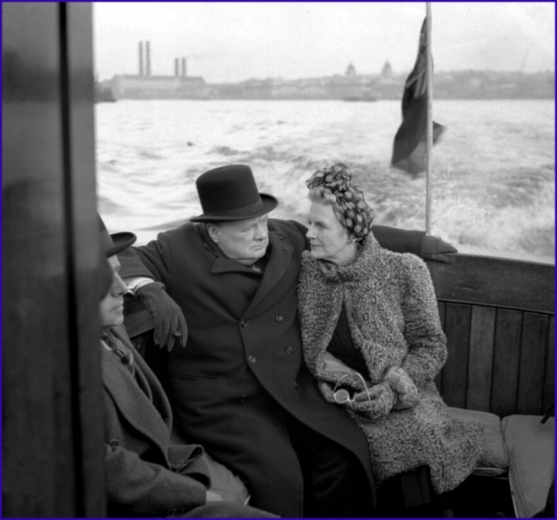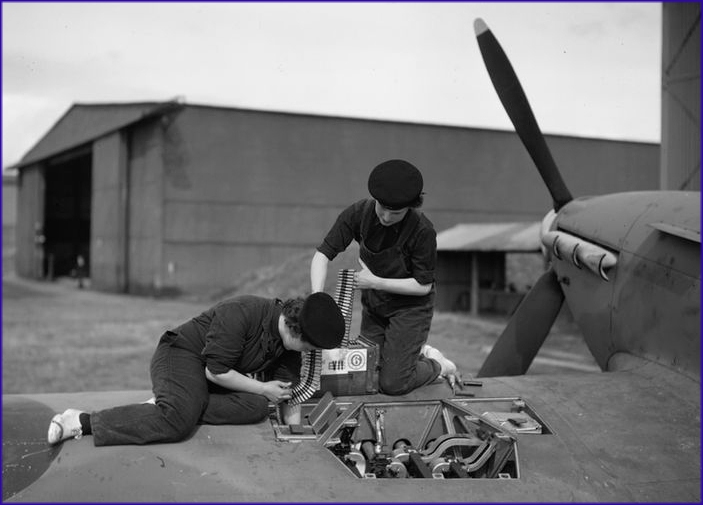By odd coincidence Winston Churchill became prime minister of Great Britain on the very day that Germany invaded France and the Low Countries.
He was under enormous pressure organizing his administration while simultaneously trying to discover what was happening in the Battle of France, to insure the French and British armies in Europe were supplied and fighting effectively, and persuading the crumbling and dysfunctional French government to continue the fight. He became quite short tempered and demanding, “rough and sarcastic” as his wife described it, alienating many colleagues and subordinates. Churchill had been an unpopular compromise choice as prime minister, so his going around alienating people put his position as prime minister in real jeopardy.
Churchill’s wife Clementine got wind of what was happening and wrote her husband a note of caution. Given that the other members of parliament who might have become prime minister in Churchill’s stead preferred to make “peace” with Hitler, how Churchill responded to his wife’s note was of historical importance.

Winston and Clementine Churchill aboard a launch on the Thames. On the horizon, just to the left of the ensign (flag) are the twin domes of the Royal Naval College, Greenwich. Up the hill a few hundred yards is the Royal Observatory, Greenwich, which marks the Prime Meridian and is the source of Greenwich Mean Time (GMT).
Churchill took to heart his wife’s admonition, tried to do better, and to a large extent changed his ways. Many people in Churchill’s position would have made excuses. He listened.
There is one example of Churchill’s willingness listen that I find particularly apt for Lean practitioners. It in involves his inspection tours of fighter bases during the Battle of Britain.
Churchill had been told that it required about an hour to refuel a Hurricane or Spitfire fighter aircraft. If that time could be significantly reduced, British fighters from bases along the channel coast could attack German aircraft as they flew toward London, land, refuel, then fly back up and attack the Germans again on their way back to France, essentially doubling the strength of the RAF in those sectors without additional pilots, ground crew, or aircraft. Very Lean.
When Churchill visited the fighter bases the ground crews told him that, in fact, the aircraft could be quickly refueled, but the time-consuming part of the process was re-arming the planes — restocking the ammunition supplies and cleaning the eight machine guns in the wings.

Women of the Women’s Royal Naval Service (WRNS, pronounced “wrens”) re-arming one of the four machine guns in each wing of a Hawker Hurricane.
Many managers would have simply lectured the ground crews — perhaps even eloquently — on the need to refuel the planes more quickly. Churchill listened and got the real story. No doubt he sent out to somebody in the RAF one of his notes with his trademark “Action This Day” stickers, asking RAF leadership what steps were being taken to find faster ways of re-arming the aircraft. I don’t recall reading whether or how they speeded up the rearming process, but I they seem to have done so.
Whether it is in your personal life or at work, there are huge costs if you will not listen.
More Leadership Lessons from Winston Churchill:
Listen.
Ask questions.
Give clear directions.
Don’t get angry at challenges to your ideas. Learn from them.
In most cases, it isn’t the person, it’s the process.
Learn to think in terms of a system.
Go and see for yourself.
Measure a lot of things, and have something to compare them to.
Have courage. Tell the truth, and expect others to do the same.
Great oratory is built on great arguments. Master your facts and your arguments first.
Copyright 2015, 2018 by Paul G. Spring. All rights reserved.
